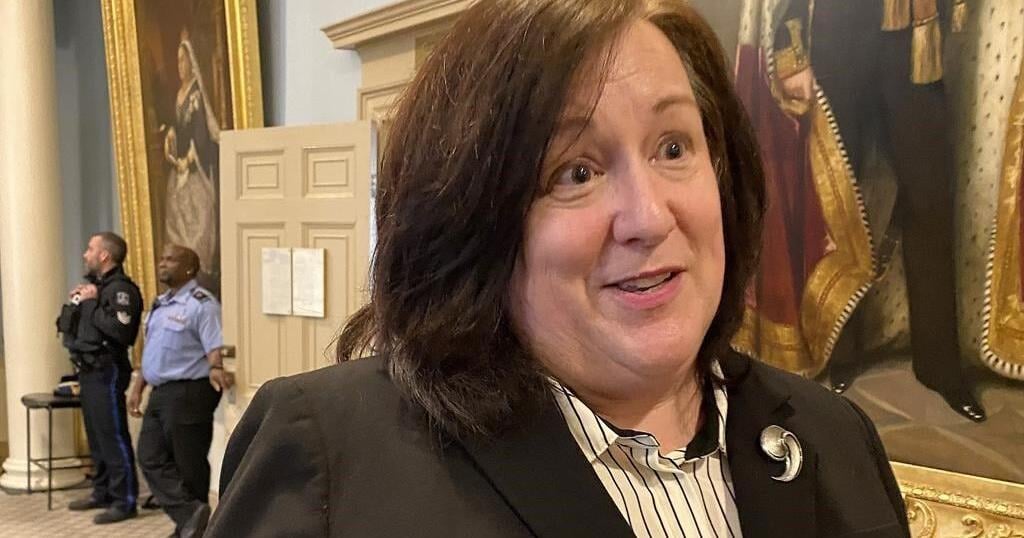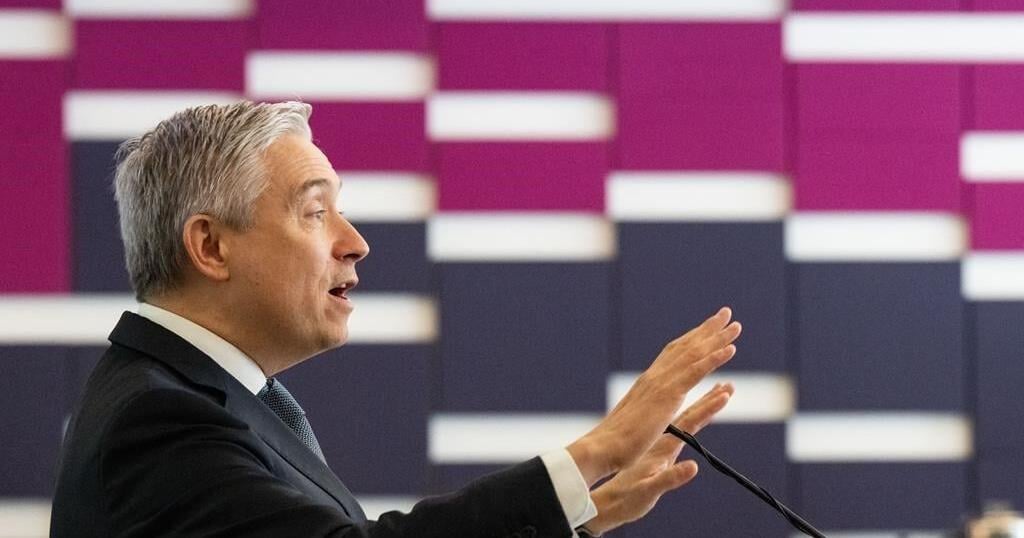Voters in Nova Scotia go to the polls on Nov. 26. At dissolution, the Progressive Conservatives held 34 seats in the 55-seat legislature, the Liberals held 14 seats, the NDP had six and there was one Independent.
Here’s a look at some of the promises announced by the three major parties on the campaign trail:
Progressive Conservatives:
— Cut the harmonized sales tax by one percentage point, to 14 per cent, by April 1. (Announced shortly before election call.)
— Increase the basic personal exemption on the Nova Scotia income tax to $11,744 from $8,744.
— Increase minimum wage in 2025 to $16.50 per hour from $15.20 per hour.
— Remove the tolls from the two Halifax harbour bridges at a cost to government coffers of $40 million.
— Open a Halifax-based medical clinic to treat the symptoms of menopause, which would cost $4 million to set up and $2.4 million a year to operate.
— Establish a 30-member provincial travel nurse team to help areas with nursing shortages, part of an estimated $5.3-million pilot program to begin at the end of 2024.
— Reduce the minimum required down payment for first-time buyers on a home costing up to $500,000 to two per cent from five per cent under a loan program administered by local credit unions.
— Launch a universal shingles vaccine program for people 65 and older.
— Make parking free at all Nova Scotia hospitals and health-care centres at a cost of $8 million.
— Impose a cap on electricity rate increases that will be based on the average of rate hikes across the country. (From platform)
— Reduce the small business tax rate to 1.5 per cent from 2.5 per cent; increase the small business tax threshold to $700,000 from $500,000. (From platform)
Liberals:
— Cut harmonized sales tax by two points, to 13 per cent. (Announced in February)
— Establish the position of ethics commissioner with order-making powers; give more resources to auditor general.
— Grant order-making powers to the privacy commissioner so that rulings related to access to information requests and other privacy matters can be enforced.
— Implement fine of $250,000 for any governing party that defies law on fixed election date.
— Remove the provincial portion of the harmonized sales tax on all food that isn’t already tax-free, such as snack foods, granola products, and rotisserie chickens, at a cost of $11 million annually.
— Provide about $10 million in subsidies for independent grocers and food retailers in the form of grants and low-interest loans to help them expand and compete with big retailers.
— Build 20 new collaborative care centres and expand services at 20 existing clinics to help tackle the province’s family doctor wait-list.
— Offer a one-time $15,000 bonus to professionals such as pharmacists and therapists who commit to five years of service in the new collaborative care centres; double the existing incentive for doctors to $10,000 a year from $5,000.
— Lower provincial income taxes by raising the basic personal exemption amount to $15,705.
— Establish a public inquiry into illegal fishing; introduce a minimum fine for people caught buying illegally harvested lobster; create a dedicated fisheries enforcement unit and separate commercial fisheries office.
— Build 80,000 new homes by 2032 to help alleviate housing shortage. (From platform)
— Replace the federal carbon price with an Atlantic region cap-and-trade model for large industrial greenhouse gas emitters. (From platform)
— Make public transit free across province. (Announced in September)
— Promote flexible work arrangements to reduce the number of vehicles on the road.
— Improve rent controls and close loopholes in the province’s regulations for fixed-term leases.
— Establish a provincial rent bank to provide zero-interest loans to renters who can’t pay their bills.
— Reduce immigration levels to align with provincial Labour Department targets.
— Create a minister of women’s health.
— Provide the public access to free menstrual products at all provincial buildings.
— Spend $300 million on local infrastructure and housing needs in Cape Breton.
NDP:
— Ban fixed-term rent leases and immediately slash the province’s rent cap in half to 2.5 per cent in order to prevent large annual rent increases.
— Establish rent control and provide a tax credit for renters from low and middle-income households.
— Prioritize the use of prefabricated housing to expand public housing stock. (Announced in May)
— Increase loans to help with down payments on homes, to 10 per cent of purchase price (up from five per cent), for a maximum of $50,000; extend the repayment period to 25 years from 10 years. (Announced in May)
— Reintroduce Coastal Protection Act to protect coastal areas, dunes and salt marshes, as well as to restrict development along parts of the 13,000-kilometre coastline at risk of heavy erosion.
— Offer an affordable homes rebate that would help households with incomes of less than $70,000 save an average of $900 per year on rent or mortgage payments.
— Create a compliance and enforcement unit for resolving tenant-landlord disputes.
— Open 45 doctor clinics across the province to provide primary care at a cost of $60 million in the first year of the plan.
— Remove the province’s portion of the harmonized sales tax from all groceries, cellphone and internet bills and for the purchase and installation of heat pumps.
— Double the municipal finance grant to $30 million from $15 million in their first year of government.
— Establish a rent-to-own home program for Nova Scotians who earn less than $100,000 annually, with about 500 new homes built in the first year by using prefabricated construction.
This report by The Canadian Press was first published Nov. 12, 2024.

























